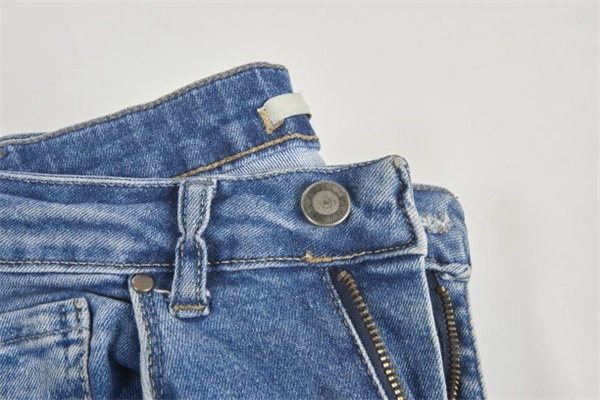Court Appearance Denim: When Jeans Are Appropriate
Introduction
Denim has long been a staple in casual fashion, but its place in formal or professional settings remains a topic of debate. One particularly contentious area is whether jeans are appropriate for court appearances. While some argue that denim is too casual for such a serious environment, others believe that wellchosen jeans can be acceptable under certain circumstances. This article explores the nuances of wearing jeans to court, examining when they might be appropriate, how to style them appropriately, and the potential risks of choosing denim over more traditional attire.
The Perception of Denim in Professional Settings

Historically, jeans were associated with manual labor and casual wear, making them an unconventional choice for formal occasions. However, modern fashion has blurred the lines between casual and professional attire. Darkwash jeans, tailored fits, and minimalist designs have elevated denim to a more polished level. Despite this shift, many courts maintain strict dress codes, and jeans may still be viewed as too informal by judges and legal professionals.
The acceptability of jeans in court largely depends on several factors:
1. The Type of Court – Federal and highlevel courts typically enforce stricter dress codes than local or small claims courts.

2. The Nature of the Case – Criminal trials may demand more formal attire than civil or administrative hearings.
3. Regional and Cultural Norms – Some jurisdictions are more lenient, while others expect traditional business attire.
When Can Jeans Be Appropriate in Court?
While suits and formal dresses remain the safest choice, there are situations where jeans might be deemed acceptable:
1. Informal Hearings or Small Claims Court
In less formal legal settings, such as traffic court or small claims hearings, the dress code is often more relaxed. If the case is minor and does not involve serious allegations, wellfitted, darkwash jeans paired with a blazer or a conservative top may be permissible.
2. Financial Constraints
Not everyone can afford a full suit or professional attire. Courts generally understand economic limitations, and as long as the jeans are clean, free of rips, and paired with a neat shirt or blouse, they may be tolerated.
3. Youth or Juvenile Cases
Young defendants or witnesses may not be expected to wear formal suits. In such cases, clean, wellmaintained jeans with a collared shirt or modest sweater could be considered acceptable.
4. Cultural or Religious Considerations
In some cases, individuals may have cultural or religious reasons for choosing certain attire. If jeans are part of a respectful and modest outfit, courts may be more accommodating.
How to Style Jeans for a Court Appearance
If jeans are the only option or are deemed appropriate for the situation, they should be styled in a way that conveys respect for the court. Here are some guidelines:
1. Choose DarkWash or Black Jeans
Lightwash or distressed denim is too casual for court. Opt for dark, solidcolored jeans that resemble dress pants from a distance.
2. Ensure a Proper Fit
Baggy or overly tight jeans can appear unprofessional. A straightleg or slimfit style (without being restrictive) is ideal.
3. Pair with Formal Elements
Balance the casual nature of jeans with more formal pieces:
A tailored blazer or structured jacket.
A buttondown shirt or conservative blouse.
Closedtoe dress shoes or polished loafers.
4. Avoid Excessive Accessories
Flashy belts, large logos, or excessive jewelry can detract from a professional appearance. Keep accessories minimal and understated.
Potential Risks of Wearing Jeans to Court
Despite the possibility of jeans being acceptable in some scenarios, there are risks involved:
1. Negative First Impressions
Judges, attorneys, and jurors may form opinions based on appearance. Wearing jeans could inadvertently signal a lack of seriousness about the proceedings.
2. Courtroom Dress Code Violations
Some courts explicitly prohibit jeans. Violating dress codes can lead to being barred from entering or even held in contempt of court.
3. Unintended Disrespect
Even if not explicitly banned, jeans may be perceived as disrespectful in certain legal environments, potentially influencing the outcome of a case.
Alternatives to Jeans for Court Appearances
If possible, it is always better to opt for more traditional court attire:
For Men: A suit or dress pants with a collared shirt and tie.
For Women: A pantsuit, kneelength skirt with a blouse, or a conservative dress.
For those who cannot afford formal wear, thrift stores, clothing charities, or rental services may provide affordable alternatives.
Conclusion
While jeans are increasingly accepted in many professional settings, their appropriateness in court remains situational. In informal hearings or cases where formal attire is not feasible, wellchosen denim may be acceptable if styled appropriately. However, in most courtrooms, traditional business attire is still the safest and most respectful choice. When in doubt, it is always best to err on the side of formality to ensure a positive impression and avoid potential complications.
Ultimately, the decision to wear jeans to court should be made with careful consideration of the specific legal environment, cultural expectations, and the potential consequences of one’s attire. Respect for the judicial process should always take precedence over personal comfort or fashion preferences.
Global logistics
It can be shipped worldwide
About the MOQ
Minimum order quantity of 200 pieces
Support 24/7
Call us:(+86)138 0277 1794
Free sample
200 pieces MOQ Free sample

Customized product message